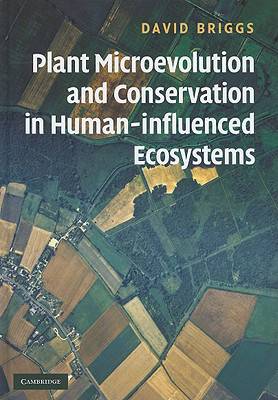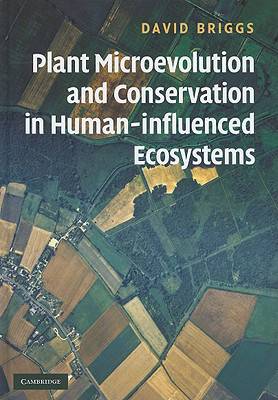
- Afhalen na 1 uur in een winkel met voorraad
- Gratis thuislevering in België vanaf € 30
- Ruim aanbod met 7 miljoen producten
- Afhalen na 1 uur in een winkel met voorraad
- Gratis thuislevering in België vanaf € 30
- Ruim aanbod met 7 miljoen producten
Zoeken
Plant Microevolution and Conservation in Human-influenced Ecosystems
David Briggs
Hardcover | Engels
€ 198,95
+ 397 punten
Omschrijving
As human activities are increasingly domesticating the Earth's ecosystems, new selection pressures are acting to produce winners and losers amongst our wildlife. With particular emphasis on plants, Briggs examines the implications of human influences on micro-evolutionary processes in different groups of organisms, including wild, weedy, invasive, feral, and endangered species. Using case studies from around the world, he argues that Darwinian evolution is ongoing. He considers how far it is possible to conserve endangered species and threatened ecosystems through management, and questions the extent to which damaged landscapes and their plant and animal communities can be precisely recreated or restored. Many of Darwin's ideas are highlighted, including his insights into natural selection, speciation, the vulnerability of rare organisms, the impact of invasive species, and the effects of climate change on organisms. An important text for students and researchers of evolution, conservation, climate change and sustainable use of resources.
Specificaties
Betrokkenen
- Auteur(s):
- Uitgeverij:
Inhoud
- Aantal bladzijden:
- 618
- Taal:
- Engels
Eigenschappen
- Productcode (EAN):
- 9780521818353
- Verschijningsdatum:
- 26/11/2009
- Uitvoering:
- Hardcover
- Formaat:
- Genaaid
- Afmetingen:
- 180 mm x 249 mm
- Gewicht:
- 1338 g

Alleen bij Standaard Boekhandel
+ 397 punten op je klantenkaart van Standaard Boekhandel
Beoordelingen
We publiceren alleen reviews die voldoen aan de voorwaarden voor reviews. Bekijk onze voorwaarden voor reviews.








